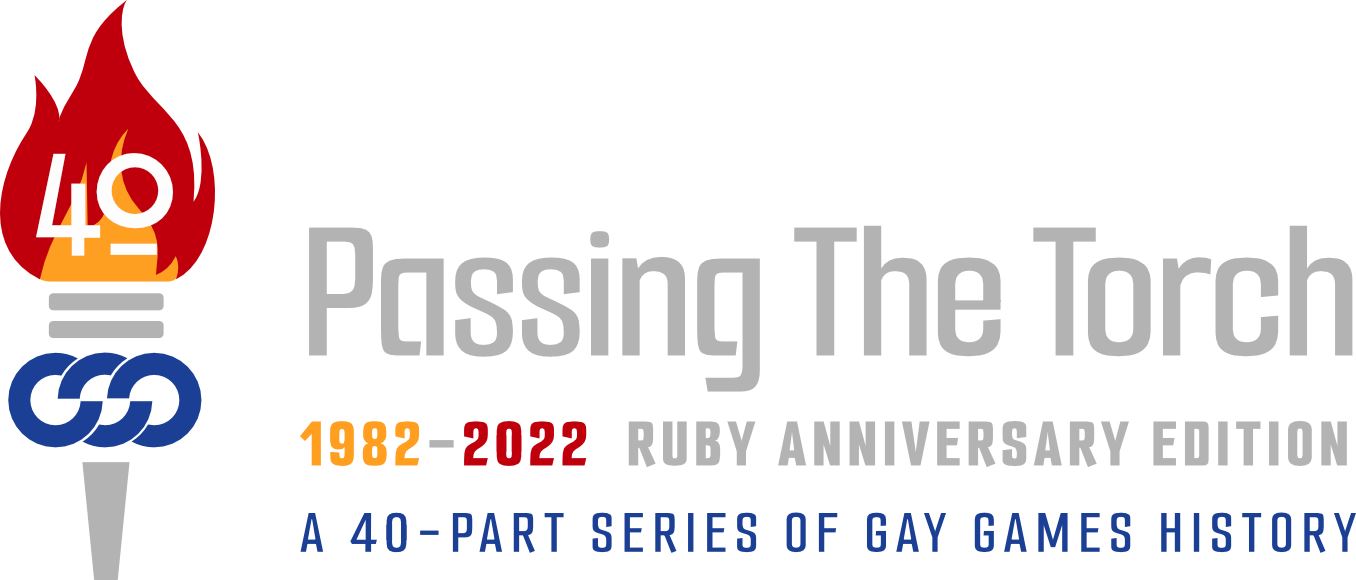Produced and curated by Federation of Gay Games Archivist Doug Litwin and FGG Honourary Life Member Shamey Cramer
with Ankush Gupta, FGG Officer of Communications
Links to Individual Posts:
Post 1 of 40 - 28 July - Introduction
Post 2 of 40 - 29 July - The Back Story: Gays and Sports post-Stonewall; Tom’s Big Idea
Post 3 of 40 - 30 July - Creating San Francisco Arts & Athletics: Laying the Foundations
Post 4 of 40 - 31 July - Efforts Outside of San Francisco
Post 5 of 40 - 1 August - The Pioneers
Post 6 of 40 - 2 August - Gay Games II
Post 7 of 40 - 3 August - Building Blocks, Origin Stories, and Growing Pains
Post 8 of 40 - 4 August - Gay Games III
Post 9 of 40 - 5 August - Mending Fences, Global Expansion, and the HIV Waiver
Post 10 of 40 - 6 August - Gay Games IV
Post 11 of 40 - 7 August - The Big Event, Games Change The World, Scholarships
Post 12 of 40 - 8 August - Gay Games V
Post 13 of 40 - 9 August - Johannesburg Annual Meeting and USOC Injunction
Post 14 of 40 - 10 August - Gay Games VI
Post 15 of 40 - 11 August - Chicago 2003 Annual Meeting: The Schism

